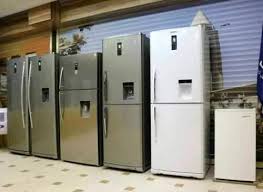Refrigerators have become an indispensable part of modern life, خرید یخچال فریزر revolutionizing the way we store and preserve food. From their humble beginnings as simple iceboxes to today’s smart appliances, refrigerators have undergone remarkable transformations over the years. This article explores the evolution of refrigerators, tracing their journey from basic preservation tools to advanced technological marvels.
The Emergence of Iceboxes:
In the early 19th century, iceboxes emerged as the first rudimentary form of refrigeration technology. These wooden or metal containers were lined with insulation and filled with ice to keep food cool. While effective to some extent, iceboxes were labor-intensive and relied on a constant supply of ice, often delivered by ice delivery services.
The Invention of Mechanical Refrigeration:
The late 19th century witnessed a significant breakthrough with the invention of mechanical refrigeration systems. In 1851, Dr. John Gorrie designed a machine that used compression to create ice, laying the foundation for modern refrigeration technology. Subsequent innovations by inventors like Carl von Linde and Albert Einstein led to the development of more efficient and reliable refrigeration systems.
The Rise of Electric Refrigerators:
The early 20th century saw the commercialization of electric refrigerators, marking a major shift in how households preserved perishable items. General Electric introduced the first mass-produced electric refrigerator in 1911, offering consumers a convenient alternative to iceboxes. These early models were bulky and consumed a significant amount of energy, but they paved the way for further advancements in refrigeration technology.
Advancements in Design and Efficiency:
Throughout the 20th century, refrigerators underwent continuous improvements in design and efficiency. Manufacturers introduced features such as automatic defrosting, adjustable shelves, and door-mounted ice makers, enhancing the functionality and convenience of these appliances. Additionally, improvements in insulation and compressor technology led to greater energy efficiency, reducing both energy consumption and operating costs.
The Era of Smart Refrigeration:
In recent years, refrigerators have entered the era of smart technology, integrating advanced features such as touchscreen displays, built-in cameras, and Wi-Fi connectivity. Smart refrigerators can monitor food inventory, suggest recipes based on available ingredients, and even allow users to remotely adjust temperature settings via smartphone apps. These innovations not only enhance convenience but also promote food safety and waste reduction.
Environmental Considerations and Sustainability:
As concerns about environmental sustainability continue to grow, manufacturers are increasingly focused on developing eco-friendly refrigeration solutions. Energy Star-rated appliances, which meet strict energy efficiency guidelines set by the Environmental Protection Agency, have become standard in many households. Additionally, advancements in refrigerants and insulation materials aim to minimize the environmental impact of refrigeration systems.
Conclusion:
From the iceboxes of the past to the smart refrigerators of today, the evolution of refrigeration technology has been characterized by innovation and progress. As we look to the future, continued advancements in design, efficiency, and sustainability will shape the next generation of refrigerators, ensuring that these essential appliances remain both functional and environmentally responsible.

